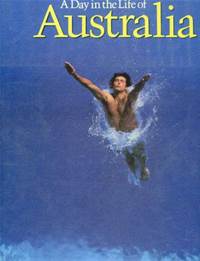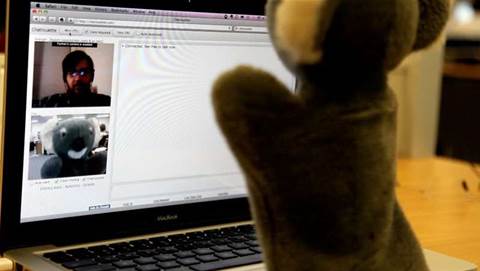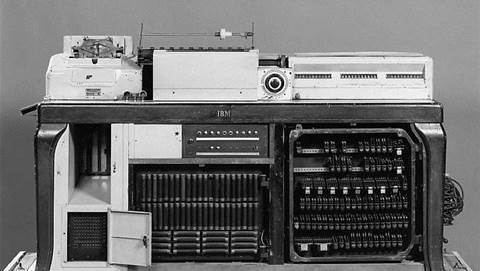This Sunday more than $5 million of digital photographic equipment will be on display at the iconic Sydney Harbour foreshore as about 1000 photographers assemble for a protest rally with a difference.

They will be joined by an A-list of camera jockeys including panoramist Ken Duncan, expedition photographer Leo Meier and beach-life essayist Rex Dupain in protest of what Photo Imaging Council of Australia board member John Swainston described as red tape intruding on their ability to chronicle Australia's social history.
Other photographers will rally in Melbourne and Brisbane, while those from other states will fly in to show solidarity.
"It became almost omnipresent - no matter what job you try to do as a working photographer there seems to be some authority ready to impose a fee or a ban or hindrance on getting the work done," Swainston said.
"Australia is developing significant limitations on recording our social history in our own land ... Many of the stories of who we are as a nation can't be recorded, at the loss of future generations."
Swainston said photographers want
- law enforcement such as rangers and police to receive better training so they know the laws they're enforcing and don't needlessly harass photographers or confiscate equipment,
- public facilities authorities such as councils and national parks to remove or limit egregious right-to-shoot charges,
- outright bans abolished or reviewed and
- anti-terror laws that limited photography reviewed.
 |
| Photographers say they are losing the right to chronicle Australia's social life. |
No-go zones?
The Sydney Harbour Foreshore Authority where the rally will be held was among those to require professionals to apply for permits to film or take photos in areas including most scenic spots near the Harbour Bridge, Luna Park and the Sydney Opera House. It allowed photographers with fewer than 10 crew and using equipment limited to a tripod to film for free, but larger projects were issued with licences costing up to about $5500.
The authority said it followed "film-friendly protocols".
"No fees are charged for individuals filming or taking photographs," a spokesman said.
"The Foreshore Authority works with stills photographers filming within its precinct to ensure access to their chosen location and to minimise impact on other events and the wider public."
Famed Australian photographer Ken Duncan said the authority "was not the problem" and praised how it dealt with photographers but that councils such as Waverley that takes in Bondi Beach and national parks and wildlife services were in photographers' viewfinders.
He said many rangers weren't aware of the rules surrounding what was permissable and needlessly harassed photographers.
And he said that national parks' fees were so high compared to the return for photgraphers that it was uneconomical to shoot them "on spec".
Duncan said that being harassed or abused by council officers and police was a common occurrence for professional photographers. On a beach in Queensland's north, in a town where he was opening a shop, he was bullied by three rangers who told him to get a licence or leave while was taking a photo of a tidal pool.
"I went to the council and said, 'You should be encouraging photographers - we're not a big commercial impact'," Duncan said. "They said, 'You need to pay a permit because you could be a pedophile'.
"What does paying $140 do about determining if I am a pedophile?"
Duncan would back a national scheme that allowed photographers access to the nation's parks with a single permit system. He said photographers didn't want special treatment and were willing to pay reasonable parks entry fees but that they shouldn't be singled out.
He raised the spectre that photographers could have their copyrights stripped from them in the future if what he called the over-zealous trend continued.
"All of a sudden, you've entered in a situation where you took a photo for fun but it's now a commercial usage," he said.
"Every photo you could imagine is on the web and if they're serious about not allowing people access to sensitive areas, why aren't they taking on Google? Because Google may tell them to get nicked."
Australians were losing their cultural heritage, Duncan said, and defining images such as Max Dupain's The Sunbaker will become rarer. And he said the photography vantage points around Uluru in the NT were fundamentally flawed for their stated intentions.
A Waverley spokesman said the beachside council didn't restrict photographers and referred to its sliding scale of fees.
"Waverley Council receives thousands of applications each year, particularly for Bondi Beach," she said.
"Waverley, like many other councils, has a permit system to help manage the high demand, make it equitable and help minimise the impact on residents, visitors and the local environment. The permit also ensures these organisations have public liability insurance."
It ensured professionals had public liability insurance but that those taking images for "personal interest do not need a permit".
She said rangers only intervene if photographers were "seen to be undertaking commercial or inappropriate operations and do not have a valid permit".
She said the council would take claims that officers had assaulted photographers "very seriously".
"However, no formal or anecdotal claim/complaint has been received by council."
 |
| Future generations may have to rely on Google Earth for their iconic images if national parks services have their way, photographers' groups fear. source: http://frank.itlab.us |
A NSW Department of Environment, Climate Change and Water that covers the state's national parks referred to its film and photography policy and said the department "generates zero revenue from filming activities".
"Park visitors and amateur photographers can take as many photos, film or videos for their personal interest as they like, to share with friends and family and as mementoes of their visit, includes uploading photos to Facebook and Flickr," the spokesman said.
"Small-scale commercial stills photography and filming for weddings are able to apply for an annual approval to undertake these activities by way of an online registration form on the NPWS website.
"There is no NPWS charge associated with this approval, except for the park entry fees where they apply. "
Swainston estimated there were 15,000 photographic jobs at stake: "If we can't take photos there will be an awful lot of people looking for different employment because they can't sell cameras".
"The irony is 90 percent of the population now carries a camera in their phone and there's never been more photos taken but if you want to take a good picture we're now being told we can't."
He said the paradox was that even as professional gear became cheaper, easier to use and fell into the hands of enthusiasts, more restrictions were placed on their behaviour by heavy-handed authorities.
He said that a publication such as the seminal '80s coffee table book A Day in the Life of Australia "would be hard to attempt today" and some of its most-loved images impossible.
"The Uluru photograph would not be permitted today."



_(33).jpg&h=140&w=231&c=1&s=0)
_(20).jpg&h=140&w=231&c=1&s=0)
_(28).jpg&h=140&w=231&c=1&s=0)





 iTnews Benchmark Awards 2026
iTnews Benchmark Awards 2026
 iTnews Executive Retreat - Security Leaders Edition
iTnews Executive Retreat - Security Leaders Edition
 iTnews Cloud Covered Breakfast Summit
iTnews Cloud Covered Breakfast Summit
 The 2026 iAwards
The 2026 iAwards











_(1).jpg&h=140&w=231&c=1&s=0)



